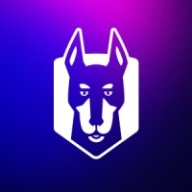

Snyk and Semgrep are competing products in the security tooling space. Snyk appears to have the upper hand in terms of comprehensive support and customer satisfaction, while Semgrep may appeal more to organizations focused on in-depth code scanning capabilities.
Features: Snyk's valuable features include its quick vulnerability identification, seamless integration with development platforms, and comprehensive support for various programming languages. Semgrep provides powerful code scanning tools, extensive customization options for rules, and unmatched scanning accuracy.
Ease of Deployment and Customer Service: Snyk offers a straightforward deployment model with broad integration support and reliable customer service. Though its setup is simpler, Semgrep provides a more technical deployment process, reflecting its focus on customization for scanning. Both offer good customer support, with Snyk being easier for less technical teams and Semgrep appealing to those preferring customized setups.
Pricing and ROI: Snyk is seen as having a higher initial setup cost with its emphasis on long-term investment through comprehensive offerings. Semgrep provides a cost-effective solution with strong cost-to-feature value, potentially leading to quicker ROI for teams emphasizing code scanning capabilities. The decision depends on whether one prioritizes comprehensive service or specific feature depth at a competitive price.
| Product | Market Share (%) |
|---|---|
| Snyk | 5.7% |
| Semgrep | 2.7% |
| Other | 91.6% |


| Company Size | Count |
|---|---|
| Small Business | 21 |
| Midsize Enterprise | 9 |
| Large Enterprise | 21 |
Semgrep is an advanced static analysis tool designed to identify vulnerabilities and enforce coding standards, catering primarily to professionals with a focus on enhancing code security and quality.
Engineered for software development environments, Semgrep delivers efficient security feedback with minimal setup. By offering a rich collection of rule sets, it allows customization and integration into CI/CD pipelines, supporting continuous code examination. Semgrep not only uncovers hidden flaws but also enforces best practices, making it a valuable asset for development teams seeking to build secure and reliable software.
What are the most important features of Semgrep?In industry applications, Semgrep is a popular choice for sectors such as finance and healthcare, where code integrity and security are paramount. Its integration capabilities allow for effective oversight of compliance and secure coding standards without disrupting existing workflows. This adaptability ensures it meets sector-specific requirements, making it a trusted tool in fields where data privacy and protection are critical.
Snyk excels in integrating security within the development lifecycle, providing teams with an AI Trust Platform that combines speed with security efficiency, ensuring robust AI application development.
Snyk empowers developers with AI-ready engines offering broad coverage, accuracy, and speed essential for modern development. With AI-powered visibility and security, Snyk allows proactive threat prevention and swift threat remediation. The platform supports shifts toward LLM engineering and AI code analysis, enhancing security and development productivity. Snyk collaborates with GenAI coding assistants for improved productivity and AI application threat management. Platform extensibility supports evolving standards with API access and native integrations, ensuring comprehensive and seamless security embedding in development tools.
What are Snyk's standout features?Industries leverage Snyk for security in CI/CD pipelines by automating checks for dependency vulnerabilities and managing open-source licenses. Its Docker and Kubernetes scanning capabilities enhance container security, supporting a proactive security approach. Integrations with platforms like GitHub and Azure DevOps optimize implementation across diverse software environments.
We monitor all Static Application Security Testing (SAST) reviews to prevent fraudulent reviews and keep review quality high. We do not post reviews by company employees or direct competitors. We validate each review for authenticity via cross-reference with LinkedIn, and personal follow-up with the reviewer when necessary.